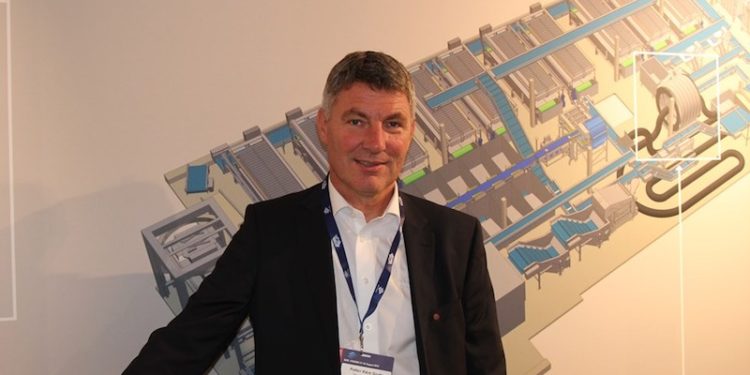MMC First Process has developed a brine freezing system for mackerel that halves energy consumption and produces mackerel that is better suited for further processing.
With mackerel fished during a short season in autumn, the pelagic industry has a requirement to be able to use mackerel as raw material for much of the year. This means mackerel needs to be frozen and defrosted for further processing. To produce the best possible quality for defrosting and filleting, the mackerel must be quickly and efficiently frozen without being deformed.
According to MMC First Process sales manager Petter Kåre Grytten, a system has been developed for single freezing and brine freezing of mackerel that makes it better suited to filleting, and in a much more energy efficient way. The brine freezing system’s energy consumption is half that of tunnel freezing of 20kg cartons, while also requiring lower staffing levels as brine frozen mackerel does not become deformed.
‘For efficient filleting, you need mackerel that has not been curved or deformed. The tests have shown that the brine frozen mackerel receives top scores for shape, while around half of the traditionally tunnel frozen mackerel scores less,’ he said.
Extended season, increased value
The brine freezing system has been developed in collaboration with Pelagia AS, Ukap AS and Møreforsking. The project received funding from the Norwegian Seafood Research Fund (FHF) which endeavours to increase both the level of processing and value creation in the pelagic industry, under its Pelagisk løft (pelagic boost) programme.
‘We are delighted about the good results and hope the system can help to increase the pelagic industry’s mackerel processing as well as extending the mackerel season,’ Petter Kåre Grytten said, commenting that system has proved to be very satisfactory in both tests in MMC Forst Process’s own premises and at fish processing plants.
‘This is one of several of our research and development projects in collaboration with FHF and the industry, and also here, we can clearly see the benefits of the interaction between users, researchers and us as developers. The goal of the project has been achieved and we are ready to develop a brine freezer with a production capacity adapted to the industry’s needs. This technology will help the industry to achieve a greater turnover on the production of mackerel fillets and a more even production over a longer season.’









